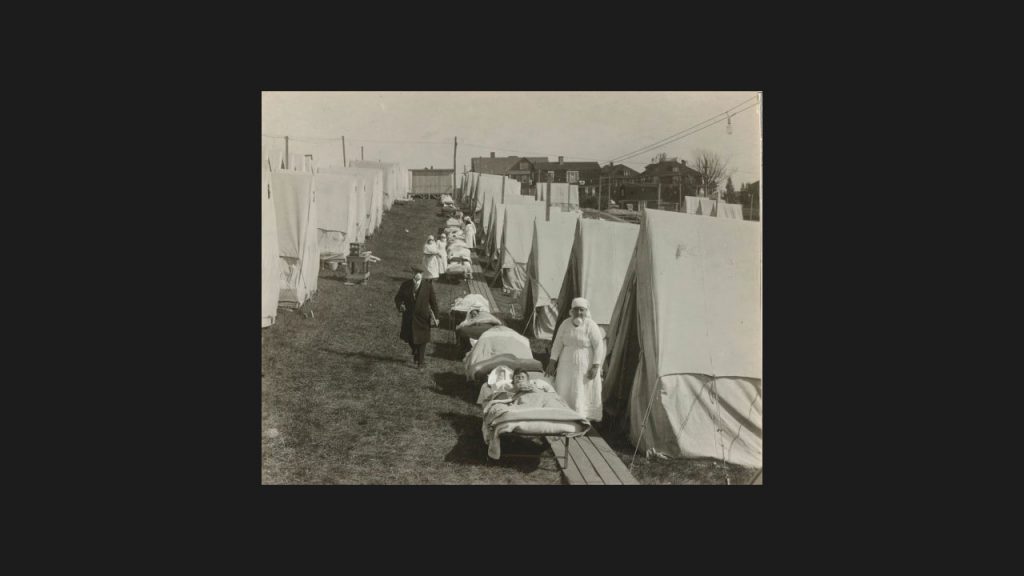Pandemic History 101: What Was the ‘Spanish’ Flu?
Dr. Howard Markel, a historian of medicine, offers comparisons and contrasts between COVID-19 and the ‘Spanish’ flu of 1918.

The global spread of the novel coronavirus has left the public in, what feels like, uncharted territory.
“The final act of almost every pandemic I have studied is ‘global amnesia.’ Once we see the light we will move on.” – Dr. Howard Markel, professor
But this is not the first pandemic to greatly impact America though.
A century ago, the world suffered from an influenza that came to be known as the “Spanish” flu, although the origins of the outbreak remain unclear. The above photo, taken in Massachusetts shows an outdoor emergency hospital to deal with cases. Detroit Today with Stephen Henderson looked at how this pandemic compares with the ‘Spanish’ flu of 1918.
Listen: What can the Spanish flu of 1918 teach us about today’s coronavirus pandemic?
Trusted, accurate, up-to-date
WDET is here to keep you informed on essential information, news and resources related to COVID-19.
This is a stressful, insecure time for many. So it’s more important than ever for you, our listeners and readers, who are able to donate to keep supporting WDET’s mission. Please make a gift today.
Guest
Dr. Howard Markel, Director of the Center for the History of Medicine at the University of Michigan, says effectively implementing extensive measures like social distancing and quarantines can be a complicated task.
“Quarantines that are implemented too late are rarely effective,” says Markel. Looking back on how various cities responded to the Spanish flu in 1918, Markel says those that acted early and implemented a layered approach to prevention were more effective in managing the spread of disease.
“Americans of that era had dealt with many other pandemics.”
On how the federal response to the Spanish flu compares to the federal response today, Markel says it really is not comparable.
“It was a very different country and very different government,” says Markel. There was no established wing of public health at the federal level and most disease prevention decisions were made at the city level says Markel.
The public mentality toward pandemics was also vastly different during the time of the Spanish flu.
“Americans of that era had dealt with many other pandemics,” he says. “There was some more familiarity with the threat of infectious diseases in a way that does not exist today because of the wonders of modern medicine.”
One consistency Markel says he has observed from his extensive study of various pandemics is that eventually life will go back to normal.
“The final act of almost every pandemic I have studied is ‘global amnesia.’ Once we see the light we will be able to move on,” says Markel.
